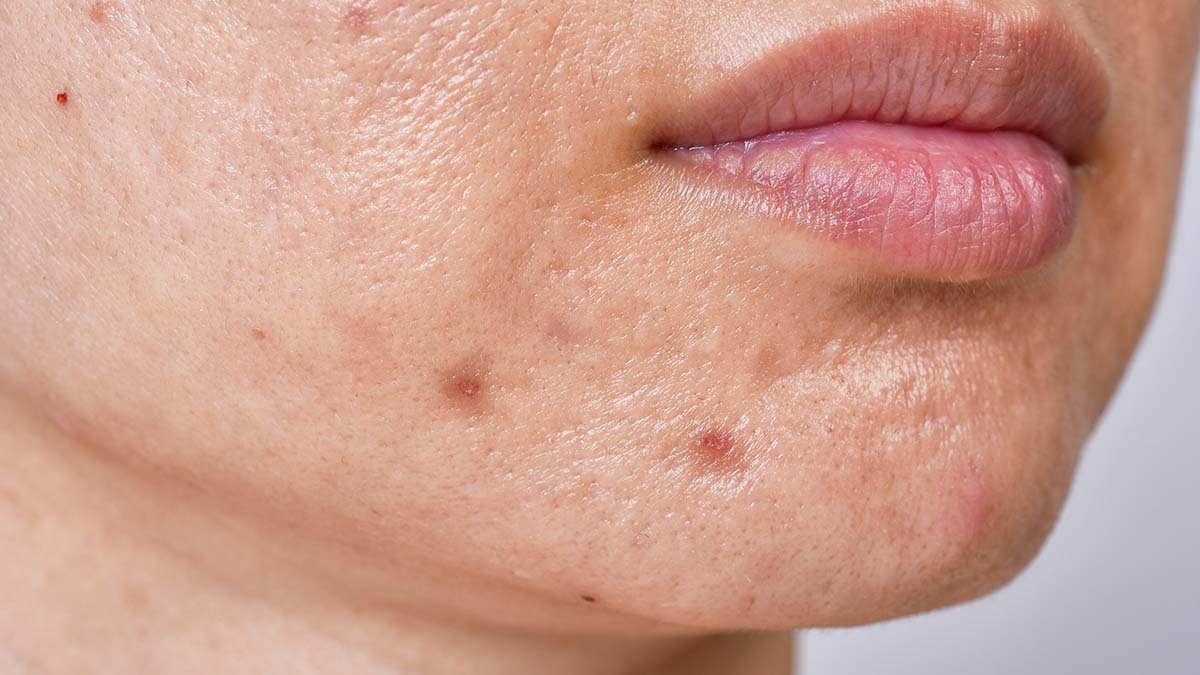


Acne vulgaris, commonly known as acne, is a chronic skin condition that affects millions of people worldwide. It is characterized by the appearance of blackheads, whiteheads, papules, and pustules on the face, neck, chest, and back. Acne can have a significant impact on a person’s self-esteem and quality of life.
Acne is caused by a combination of factors, including hormonal changes, genetics, and certain lifestyle choices. Hormonal changes during adolescence lead to an increase in sebum production, which can clog the pores and lead to the formation of acne. Genetics also play a role, as those with a family history of acne are more likely to develop the condition. Diet, stress, and certain skincare products can also contribute to the development of acne.
Acne can be classified into several types, including non-inflammatory acne, inflammatory acne, and cystic acne. Non-inflammatory acne includes blackheads and whiteheads, while inflammatory acne includes pustules, nodules, cysts, and papules. A cystic acne is a severe form of inflammatory acne that involves the formation of large, painful cysts.
There are several treatment options available for acne, including over-the-counter products, prescription medications, and procedures. Over-the-counter products, such as benzoyl peroxide and salicylic acid, can be effective in treating mild to moderate acne. Prescription medications, such as topical retinoids and antibiotics, can be prescribed for moderate to severe acne. Procedures, such as chemical peels and laser therapy, can also be used to treat acne.
One of the most important aspects of treating acne is to maintain a consistent skincare routine. This includes cleansing the skin twice a day with a cleanser, using non-comedogenic moisturizer, and avoiding the use of heavy makeup and hair products. It is also important to avoid picking or squeezing pimples, as this can lead to pigmentation. A healthy diet and regular exercise can also help to prevent and treat acne. Foods high in sugar and processed foods can increase inflammation in the body, leading to the development of acne. Instead, a diet rich in fruits and vegetables, lean protein, and healthy fats can help to reduce inflammation and improve the overall health of the skin.
At Kinder Women’s Hospital in Bangalore, our team of experts is dedicated to providing comprehensive care for patients with acne. Our best dermatologists in Bangalore for acne use the latest technologies and treatments to help patients achieve clear skin. They understand the emotional and physical impact that acne can have on a person’s life and strive to provide the best possible care for their patients. They take the time to understand each patient’s individual needs and create a customized treatment plan accordingly. We offer a range of treatment options, including topical and oral medications, chemical peels, and laser therapy. Our approach to treating acne is tailored to the individual needs of each patient. We take into consideration the patient’s medical history, lifestyle, and skincare routine to create a customized treatment plan. We also provide ongoing support and guidance to help patients maintain clear skin and improve their overall self-esteem.
If you’re looking for the best dermatologist in Mahadevapura or Bangalore for acne, look no further than Kinder Women’s Hospital.